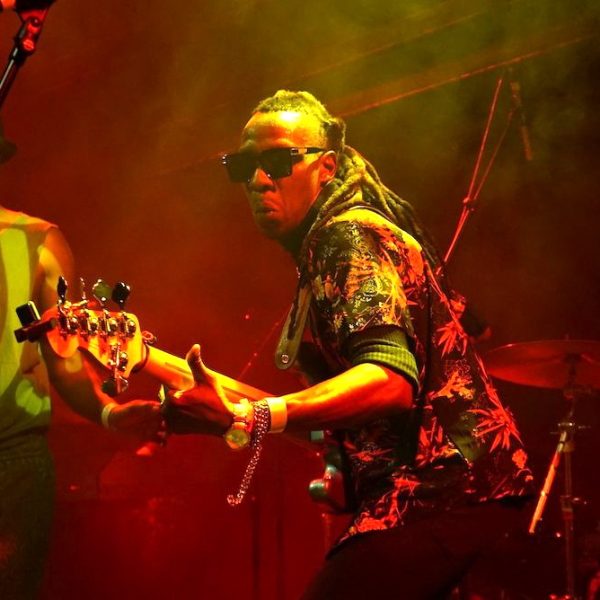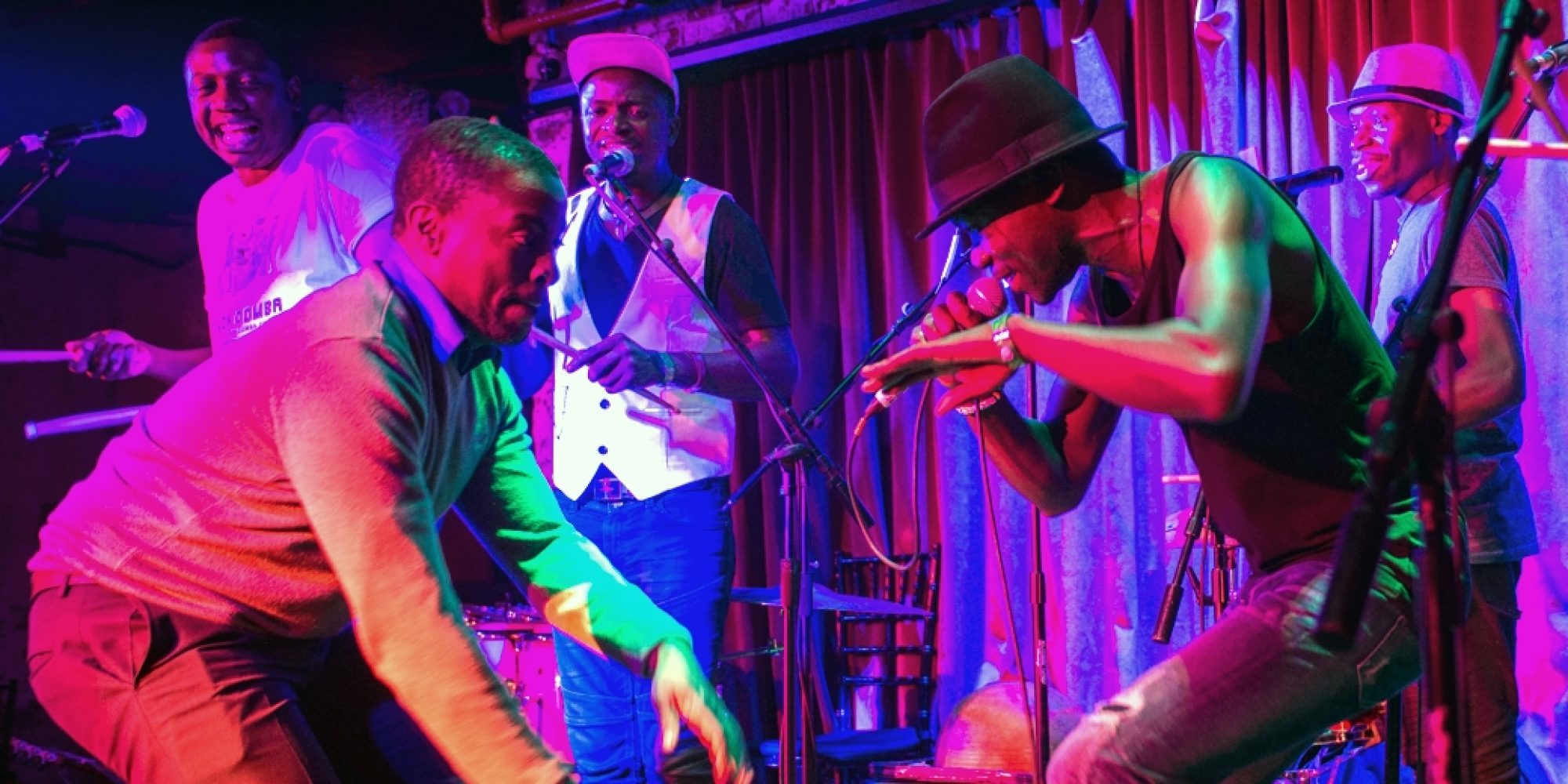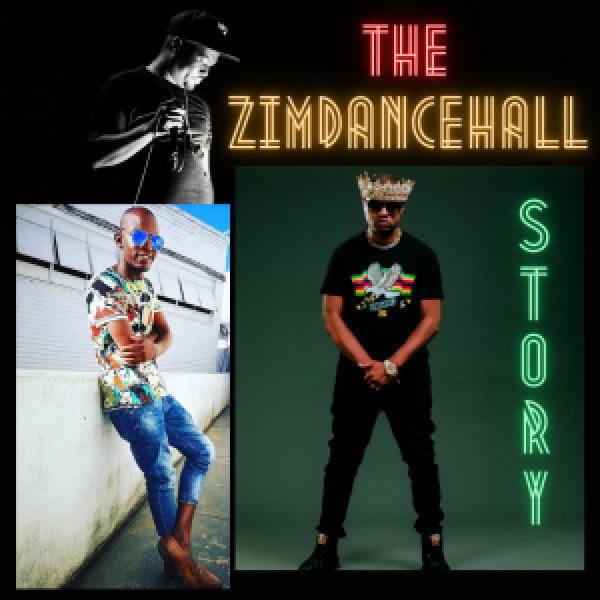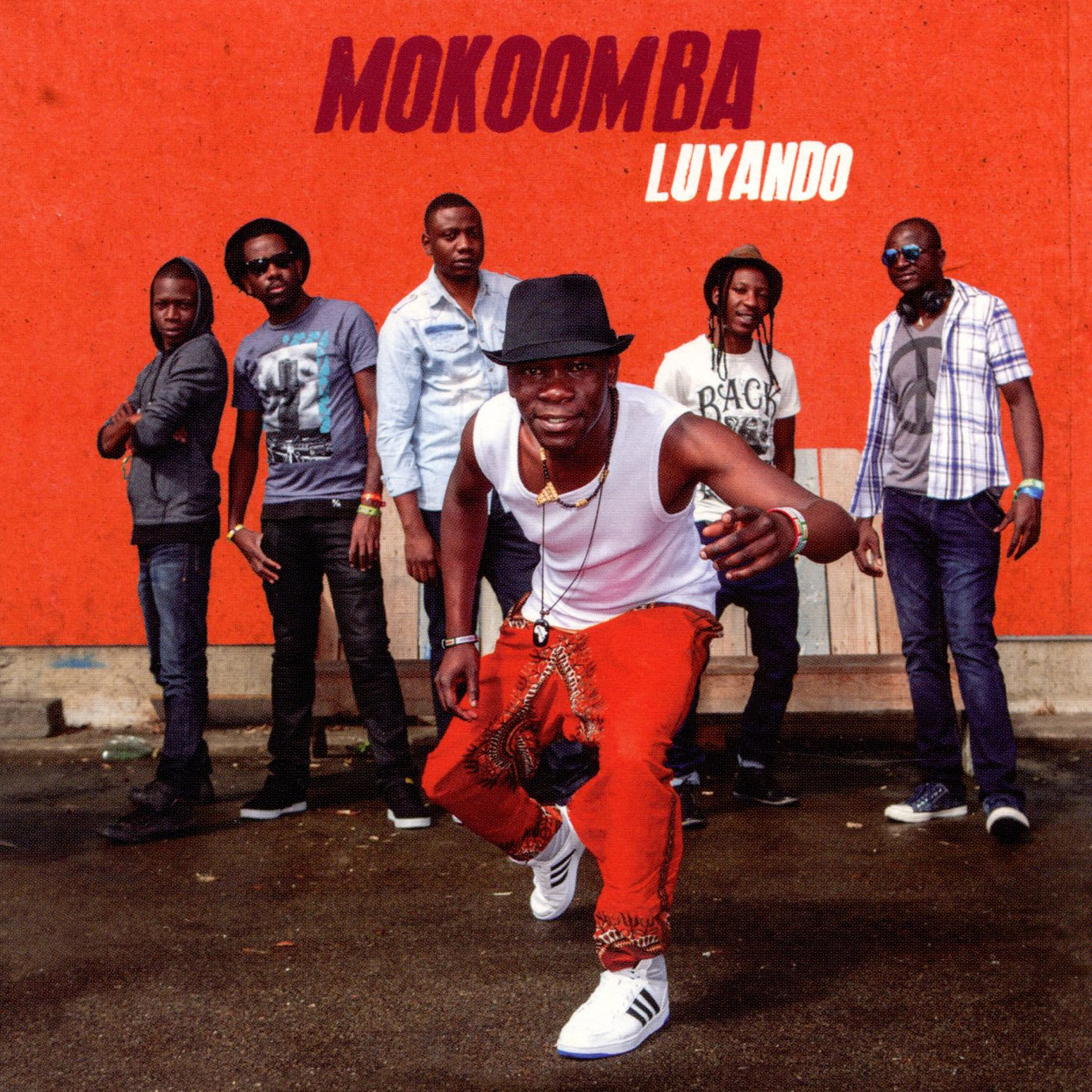By the time the Zimbabwean band Mokoomba arrived on the African pop scene with their international debut album Rising Tide in 2013, they had been developing their sound for a decade. No doubt that’s one reason Ivoirian singer/producer Manou Gallo was keen to produce the album. The sound was already fully formed and polished, and Mokoomba delivered onstage like nobody’s business, with choreography and energy that left audiences breathless. They quickly became one of the most talked-about bands on the African live circuit. Buoyed by a slamming rhythm section and a sensational vocal blend, Mathias Muzaza’s spine-tingling, buzzsaw voice and Trustworth Samende’s richly authoritative guitar work, the band’s sound was a revelation. They took you back to the thrilling dawn of the legendary Bhundu Boys in the early ‘90s.
A decade and a global pandemic later, the lads from Victoria Falls are back with their third album, Tusona (Tracings In The Sand), once again forefronting bold adaptations of local traditions, and the honoring of ancestors, with savvy pan-African influences. These musicians have internalized their experiences recording with producers (Gallo, and then Steve Dyer on Luyando in 2017). But here, they take full control of their sound, producing on their own terms. The biggest change is the addition of a powerhouse brass section from the Ghanaian highlife band Santrofi. Tight, tart interventions supercharge Mokoomba’s muscular grooves. If anyone thought guitar-driven live bands are passe in the era of Afrobeats and Amapiano, think again.
The band’s identity and songwriting have always been tied up in the local traditions of the Victoria Falls region of northern Zimbabwe. They sing in languages rarely heard in Zimbabwean pop: Tonga, Luvale and Nyanja, as well as the ubiquitous Shona. But Mokoomba are more than a regional act. Their songs draw from Malian pop, Zamrock and Kasai Congo songs, as well as distinctly Zimbabwean sounds, notably minor-key, guitar-driven grooves reminiscent of classic barn-burners by Thomas Mapfumo and the Blacks Unlimited.
The opener, “Tamvela Mama,” grooves with a harmonic progression and cycling guitar riff that evokes Mande-derived Malian pop, not unlike Salif Keita or the late-career Super Rail Band. Mathias Muzaza keening tenor gives the track the unmistakable Mokoomba stamp while the band confidently owns the Malian style.
The album’s first single “Makisi” evokes a Luvale initiation ceremony with an earworm chorus—"We le le, We le le”—powerhouse horns and those Chimurenga minor-key guitar hooks. Evoking the album’s central theme, the Makisi are masked characters representing the spirit of deceased ancestors.
“Makolo” nods to the Congo, not far from Mokoomba’s home in the north of Zimbabwe. Guest vocalist Desolo B sings in Lingala and the backing harmonies recall the sound of Papa Wemba’s band, Viva La Musica. Superb vocal harmonies and call-and-response passages are key elements in Mokoomba’s magic. They’re bold and edgy, fueled by fiery commitment. “Manina,” a song about losing a loved one, was written during the pandemic and features the lovely voice of a young female singer from Harare, Uletha. Moody and mournful, this track is one of just two slower songs, providing brief respite among Mokoomba’s fierce, driving grooves.
“Nzara Hapana” evokes the celebratory, folksy chikende dance style, also championed by Mapfumo and the Blacks Unlimited over the years. The title is Shona for “no money” and the song deals with the common problem that arises when a married man dies and his family moves in to claim possessions, often leaving the widow penniless. There’s a tasty guitar breakdown by Trustworth Samende, another side of this guitar master’s multi-faceted talent.
I once called Mokoomba the most exciting young band to emerge from Africa in years. A decade on, my admiration has only grown.
Related Audio Programs

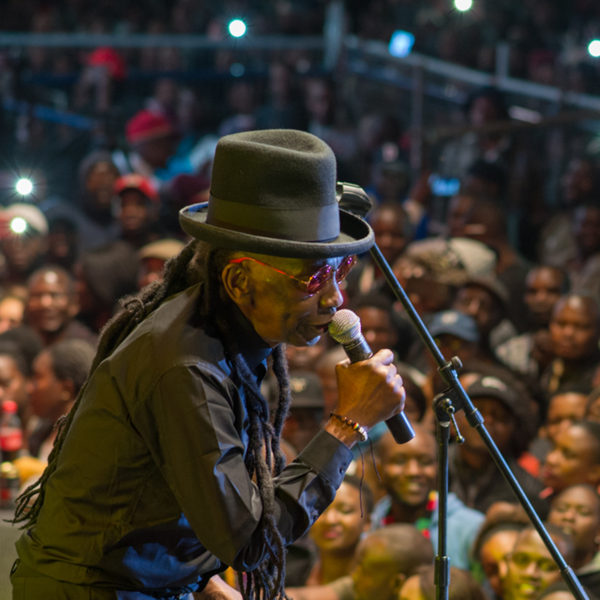
Related Articles
